13 Fruits to Eat for Faster Weight Loss
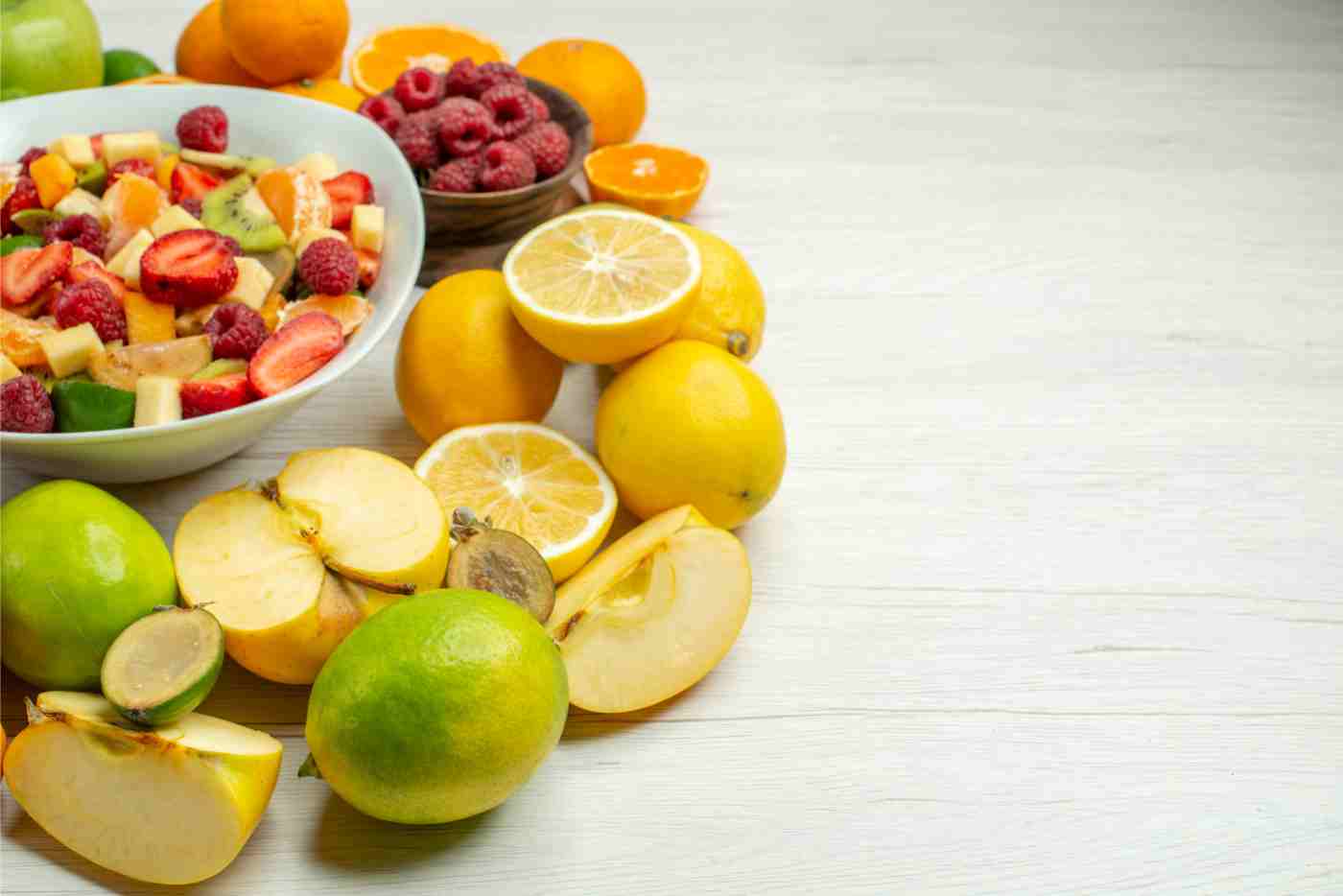
Fruits are loaded with fibre, vitamins and a number of other nutrients, which help to support a healthy diet. These also contain fewer calories and have high fibre content, which can aid in weight loss. If you are in search of fruits for weight loss, this is the right article for you.
Find below which fruits are best for weight loss and which ones to avoid, along with several other details!

Table of Contents

13 Best Fruits for Weight Loss?
Incorporate these low-calorie, nutrient-dense fruits into your diet for faster weight loss. Listed below are the best fruits for weight loss:
1. Berries

These fruits contain few calories. In fact, 74 grams of blueberries consist of only about 42 calories, while 152 grams of strawberries have fewer than 50 calories. Therefore, berries can be an excellent fruit for breakfast and weight loss. Besides, berries can help lower blood pressure, cholesterol levels, and inflammation in the body.
Nutritional Value (1 cup, mixed berries)
- Calories: 70
- Protein: 1 gram
- Carbohydrates: 17 grams
- Fibre: 8 grams
- Fat: 0.3 grams
How Berries Help Lose Weight?
- Berries are rich in fibre, prolonging satiety and the digestion process. Because of their low caloric density, it is possible to include larger portions in the diet
- They also contain many antioxidants, which can promote general body functioning and decrease inflammation, hence assisting you in managing your weight.
2. Stone Fruits
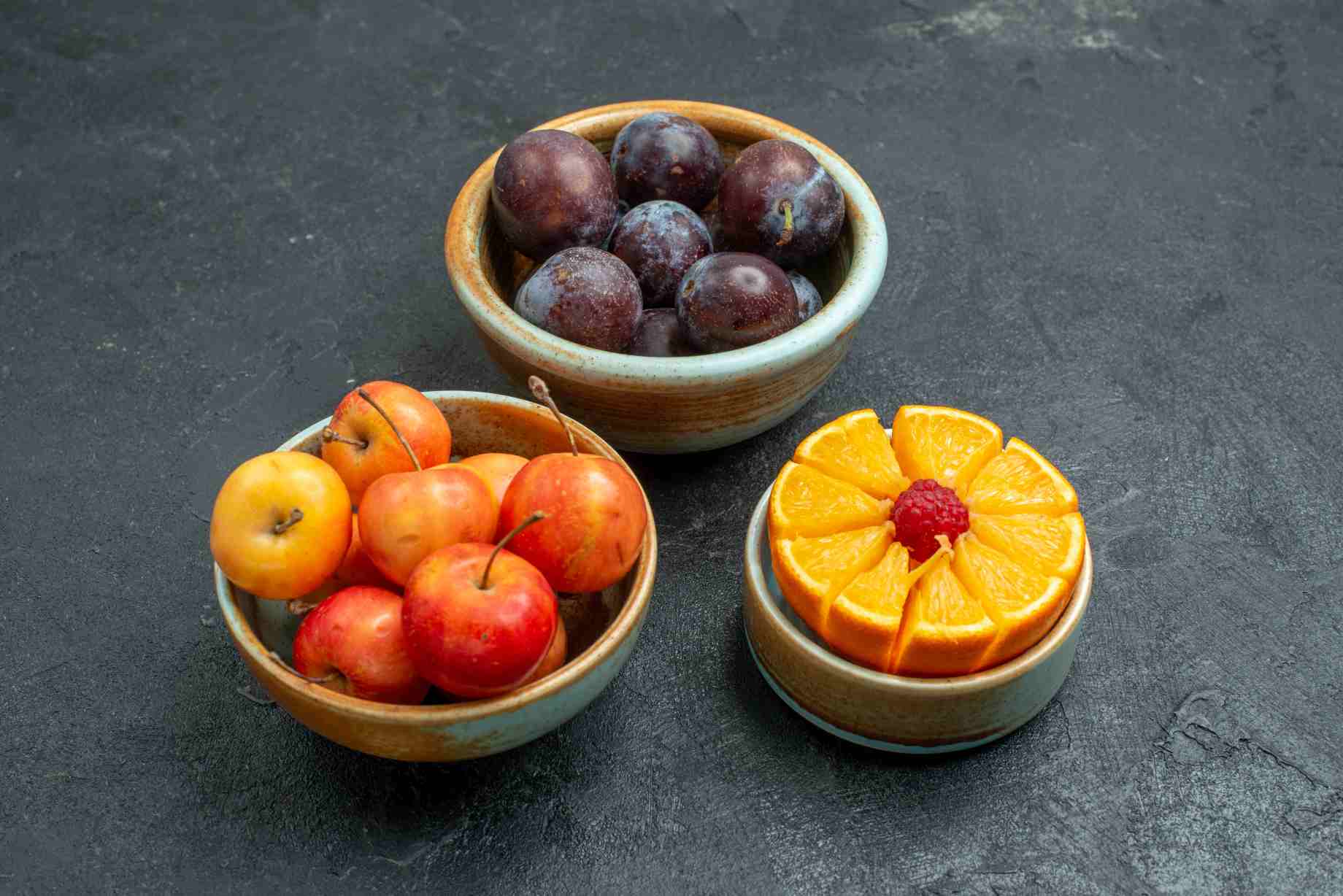
Also referred to as drupes, stone fruits are a category of seasonal fruits that have pits with fleshy exteriors. These fruits include nectarines, cherries, plums, apricots and peaches. They have low calories and GI, and they are enriched with vitamins A and C, making them a good option for those with a goal to lose weight.
Nutritional Value (1 cup, mixed stone fruits- 150 grams)
- Calories: 60
- Protein: 1 gram
- Carbohydrates: 15 grams
- Fibre: 2 grams
- Fat: 0.5 grams
How Stone Fruits Help Lose Weight?
- Stone fruits have low-calorie content, as they are mostly composed of water and fibre.
- The fruit's dietary fibre ensures good digestion and efficient metabolism which makes it suitable for burning excessive fats thereby losing weight.
3. Grapefruit

Grapefruit can be defined as a cross between an orange and a pomelo. It is usually linked with weight loss and diets. Half a portion of a grapefruit consists of about 39 calories. This fruit for weight loss is enriched with vitamins A and C. Additionally, grapefruit may prove to be a healthy snack that you can consume before meals to reduce the overall calorie intake.
Nutritional Value (1 grapefruit- 240 grams)
- Calories: 104
- Protein: 2 gram
- Carbohydrates: 26 grams
- Fibre: 4 grams
- Fat: 0.4 grams
How Grapefruit Helps Lose Weight?
- Grapefruit is low in calories and high in water and fibre, which enhances body hydration and gives the feeling of fullness.
- It has elements that help boost metabolism and increase the fat's burning rate.
4. Apples

Apples are rich in fibre and contain a lesser amount of calories. Additionally, they contain natural sugars and essential nutrients that support a healthy diet. For instance, an apple weighing 223 grams contains about 5.4 grams of fibre and 116 calories.
Looking for the best fruit to eat at night for weight loss? We suggest you include apples in your diet.
Nutritional Value (1 medium apple- 182 grams)
- Calories: 95
- Protein: 0.5 grams
- Carbohydrates: 25 grams
- Fibre: 4.4 grams
- Fat: 0.3 grams
How do Apples Help Lose Weight?
- Apples are filled with enough fibre to help you feel full, hence reducing your overall food consumption per day and your total calorie intake.
- They also contain antioxidants essential for a healthy lifestyle and metabolic functioning.
5. Oranges

Oranges are loaded with potassium and fibre. Given their low-calorie content, these can help you shed weight. Moreover, oranges contain cancer-fighting citrus limonoids. This vitamin C rich fruit is also necessary for the growth and repair of tissues in your body, such as blood vessels, cartilage, tendons, skin, and ligaments.
Nutritional Value (1 medium orange- 131 grams)
- Calories: 62
- Protein: 1 gram
- Carbohydrates: 15 grams
- Fibre: 3 grams
- Fat: 0.2 grams
How Oranges Help Lose Weight?
- Oranges contain lots of fibres, making them good for digestion and keeping one’s appetite under control.
- Additionally, oranges contain vitamin C, which supports immune system health and general well-being; thus, it contributes to weight loss management.
6. Watermelon

This fruit for weight loss with high water content and low calories proves to be an excellent option for losing weight. 100 grams of watermelon consists of around 30 calories. Furthermore, these fruits are enriched with arginine, an amino acid with belly fat-burning properties.
Nutritional Value (1 cup, diced- 152 grams)
- Calories: 46
- Protein: 0.9 grams
- Carbohydrates: 12 grams
- Fibre: 0.6 grams
- Fat: 0.2 grams
How Watermelons Help Lose Weight?
- Watermelon contains lots of water to hydrate your body, thereby preventing excessive eating. It also keeps you satisfied longer than usual.
- With lower calorie density, this fruit permits greater amounts without extra caloric charges.
7. Guava

Guavas help maintain levels of blood sugar and are, therefore, excellent for diabetic individuals. They are loaded with lycopene, vitamin C, and antioxidants. They also help with digestion.
Nutritional Value (per 1 cup- 165 grams)
- Calories: 112
- Protein: 4.2 grams
- Carbohydrates: 24 grams
- Fibre: 9 grams
- Fat: 1.6 grams
- Vitamin C: 628% of RDI
How Guava Helps Lose Weight?
- Guava contains many fibres, promoting fullness and digestion regularity. It also contains numerous vitamins C and is useful for enhancing immunity against diseases.
- This fruit is rich in nutrients and relatively cheap as far as dieting is concerned.
8. Limes
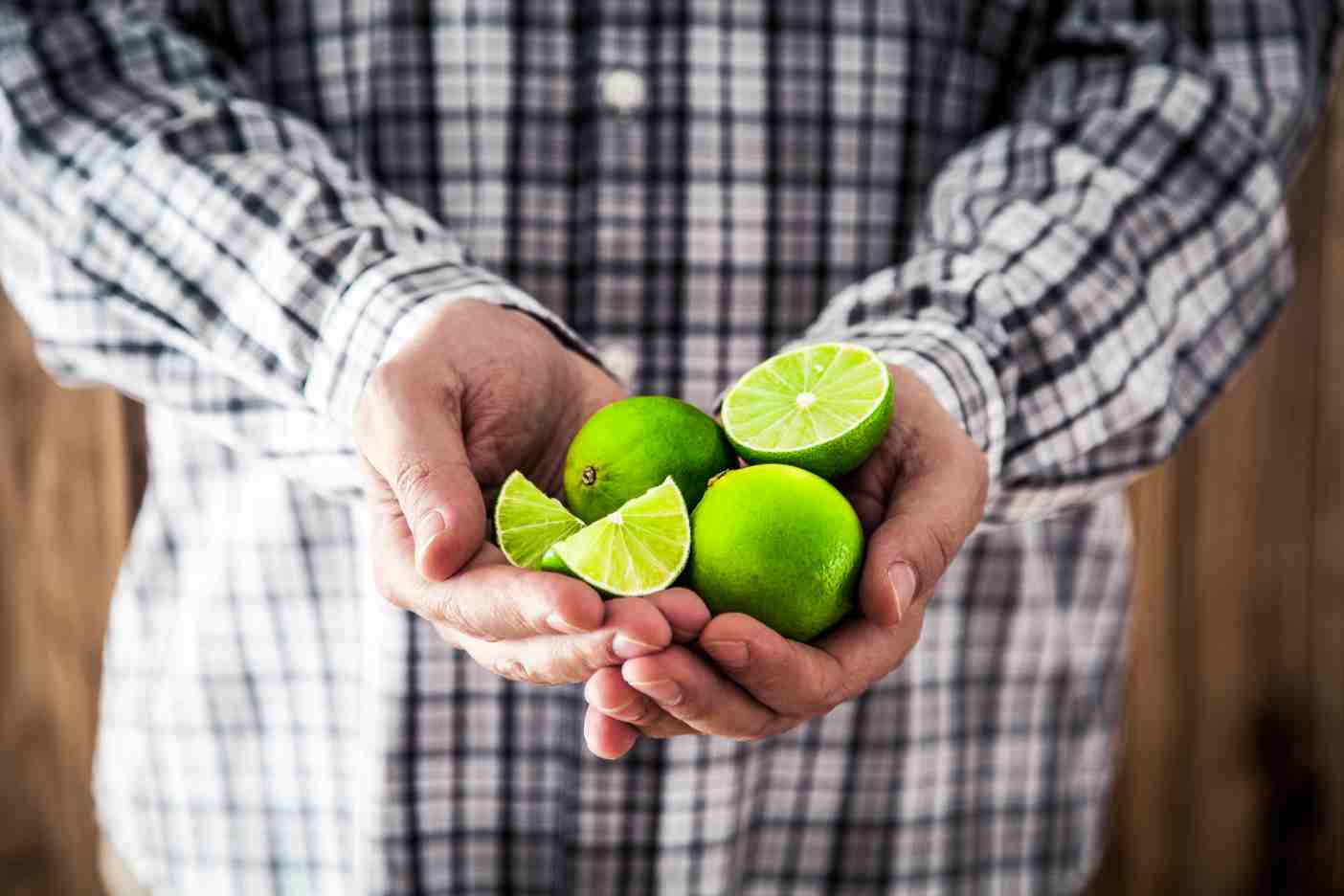
Packed with limonoids, antioxidants and flavonoids, limes are an excellent source of fibre and vitamin C. Moreover, limes are used as an ingredient in detox water drinks, which helps with weight loss.
Nutritional Value (1 medium lime- 67 grams)
- Calories: 20
- Protein: 0.5 grams
- Carbohydrates: 7 grams
- Fibre: 1.9 grams
- Fat: 0.1 grams
- Vitamin C: 32% of RDI
How Lime Helps Lose Weight?
- Limes do not contain many calories but are high in vitamin C and can boost their immune system functions.
- Limes can be used to add taste to meals or water, enabling more water intake and less calorie consumption.
9. Pears

A medium-sized pear consists of about 100 calories. This fruit also contains a high level of water and fibre, both of which keep you satiated for hours. They are also low in calories, making them a healthy, satisfying snack.
Nutritional Value (1 medium pear- 178 grams)
- Calories: 101
- Protein: 1 gram
- Carbohydrates: 27 grams
- Fibre: 6 grams
- Fat: 0.3 grams
How Do Pear Help Lose Weight?
- Pears are fibrous fruits that help to reduce hunger pangs and enhance digestion. They have few calories and can be taken when one wants little calories.
- Pears also contain large amounts of water, which contributes to maintaining hydration and thus promotes losing weight.
10. Kiwifruit
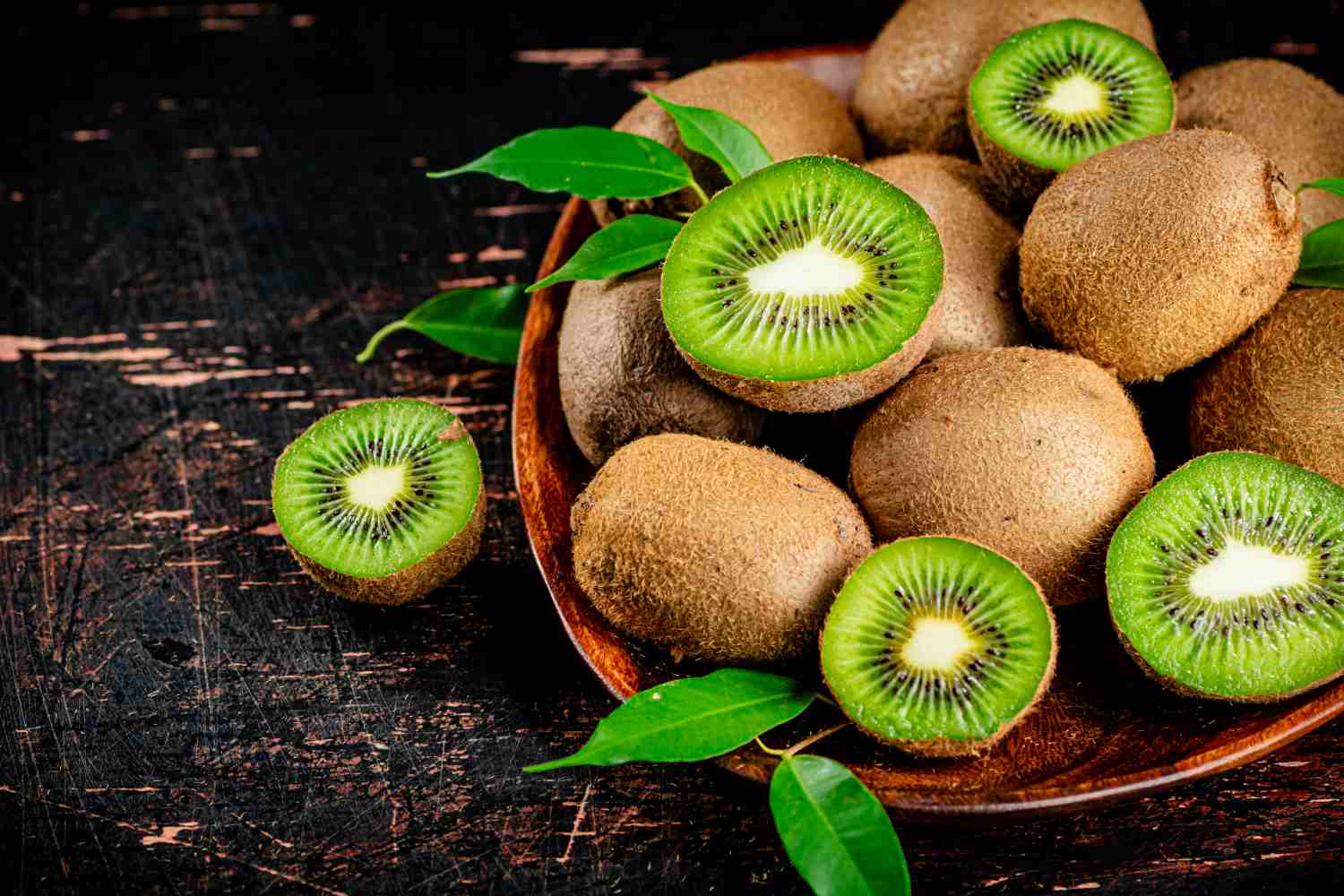
Kiwifruits are loaded with fibre, and vitamins E, C, and B9. Diets containing fruits like these improve gut health, promote losing weight, and help keep you full for longer. Therefore, kiwifruit can be considered a low-calorie option for fruits to eat at night for weight loss.
Nutritional Value (1 medium kiwi- 69 grams)
- Calories: 42
- Protein: 0.8 grams
- Carbohydrates: 10 grams
- Fibre: 2.1 grams
- Fat: 0.4 grams
How Kiwi Helps Lose Weight?
- Kiwi is low in calories and fibre, supporting the digestive system while inducing satiety.
- Its high vitamin C content helps to metabolise fat and maintain a healthy body, making it a very nutritious, low-calorie food for those who want to lose weight.
11. Papaya

Papaya is a tropical fruit with a musky, sweet taste and bright orange flesh, commonly eaten fresh or in smoothies. Its high water content helps in hydration and overall metabolism.
Nutritional Value ( 1 cup, cubed- 140 grams)
- Calories: 55
- Protein: 1 gram
- Carbohydrates: 14 grams
- Fibre: 2.5 grams
- Fat: 0.2 grams
How Papaya Helps Lose Weight?
- It is low in calories but high in fibre, which stimulates digestion and satiety through papain.
- It also facilitates the metabolism of proteins, thus making it a useful fruit for reducing weight.
12. Plums
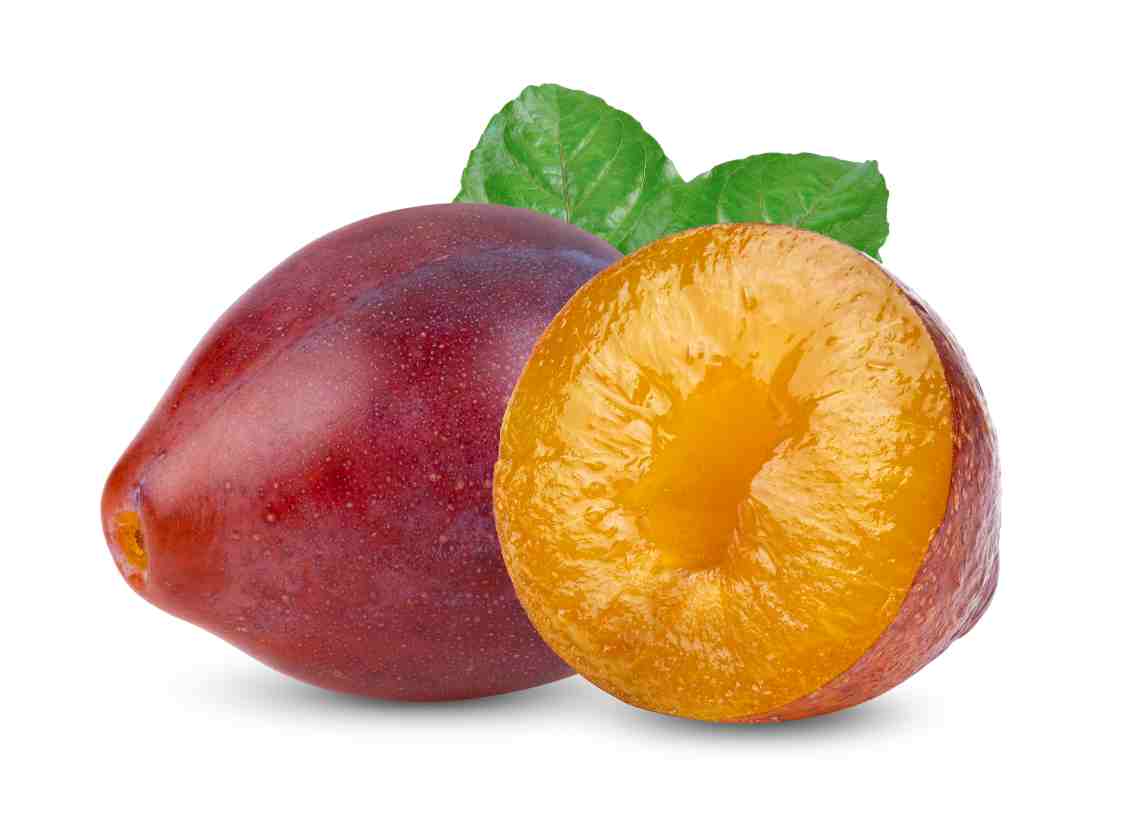
Plums are juicy, sweet, and slightly sour when dried into prunes. They come in various colours, including red, purple, yellow, and green, each with its unique flavour profile.
Nutritional Value (1 medium plum- 66 grams)
- Calories: 30
- Protein: 0.5 grams
- Carbohydrates: 8 grams
- Fibre: 1 gram
- Fat: 0.2 grams
How Plums Help Lose Weight?
- Containing fewer calories, plums serve as sources of dietary fibre, aiding digestion while promoting satisfaction.
- They also possess antioxidants necessary for health enhancement, and minimising inflammation, and thus, they foster obesity control.
13. Cherries

Cherry is a small round fruit with a flavour that may be either sweet or sour that is usually taken fresh, dried or used in cakes.
Nutritional Value (1 cup- 138 grams)
- Calories: 87
- Protein: 1.4 grams
- Carbohydrates: 22 grams
- Fibre: 3 grams
- Fat: 0.3 grams
How Cherries Help Lose Weight?
- Cherry has low calories, so you can eat them without feeling guilty. It also has high fibre content, which helps maintain satiety.
- Additionally, cherries contain many antioxidants that help to reduce inflammation and promote overall body wellness, supporting weight control efforts.
How Can Fruits Help With Weight Loss?
Fruits promote fullness, enable digestion, and offer vital vitamins and minerals for easier maintenance of a healthy diet. They prove to help lose weight because of the following aspects -
Fibre Content
Fruits have high fibre content. An increased fibre intake is associated with lower body weight. Moreover, individuals feel satiated for longer due to fibres, which might lower the overall intake of calories.
Water Content and Calories
Many fruits like melons and berries contain high levels of water. Fruits make individuals feel fuller because of their water content and fibre content as well.
Low Glycemic Index
The glycemic index or GI measures a food item’s impact on the levels of blood sugar. Foods with a lower GI lead to slow changes in blood sugar. Therefore, a calorie-controlled diet with low GI can be more effective as compared to a low-fat, high GI diet.
Natural Sweetness
The natural sweetness in fruits helps one curb sugar cravings. Opting for fruits instead of cakes or cookies helps individuals consume a lesser number of calories, added sugars, and fat while still enjoying a sweet treat. If one substitutes sugary food items with fruits while having a balanced diet, he/she can easily lose weight.
Tips to Lose Weight on a Fruit Diet
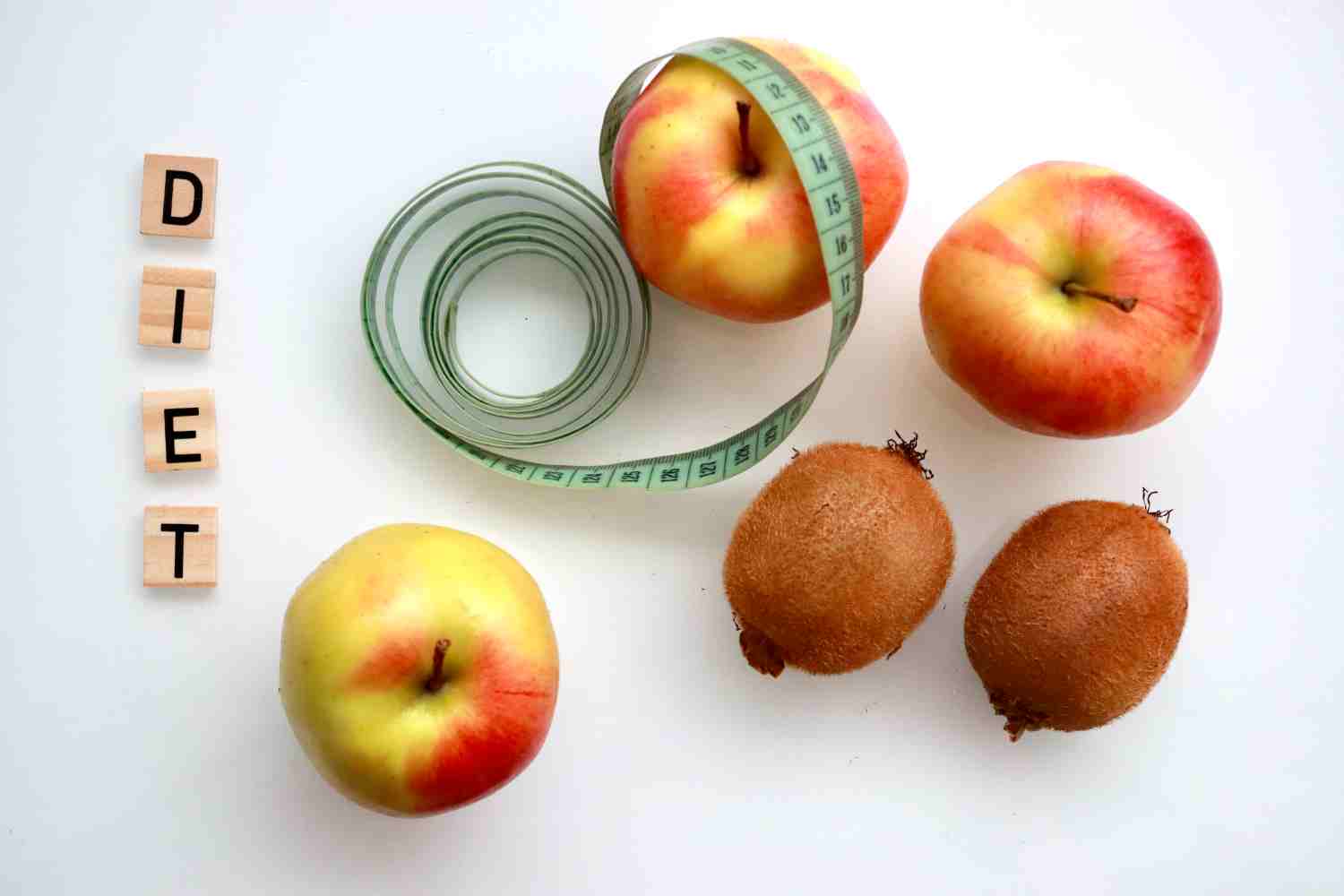
Incorporating fruits into your diet can be a delicious way to support shedding those extra pounds off your body. Check out these helpful tips to optimise your results while on a fruit-based eating regimen.
- Select Low-Calorie, High-Fibre Fruits: Choose fruits low in calories but high in fibre, like berries, apples, pears and citrus fruits.
- Control Portion Sizes: Although fruit is healthy, it can still contain calories. Stick to the portions recommended to avoid overeating.
- Use Different Fruits: Eating a variety of different fruits means that you enjoy a wider range of nutrients and do not get bored.
- Keep Hydrated: Drink enough water every day. Sometimes, thirst is confused with hunger, and keeping hydrated can help regulate your appetite.
- Avoid Dried Fruits: Dried fruit contains more sugar and calories. It is best to consume it moderately or completely avoid it.
- Supplement with Exercise: Supplement your “fruit diet” with regular physical activities. Physical exercises burn off calories while increasing the metabolic process.
- Take Whole Fruits Rather than Fruit Juices: Whole fruit is more filling than fruit juices, which often have lots of sugars but no fibre.
Which Fruits Should You Avoid for Weight Loss?
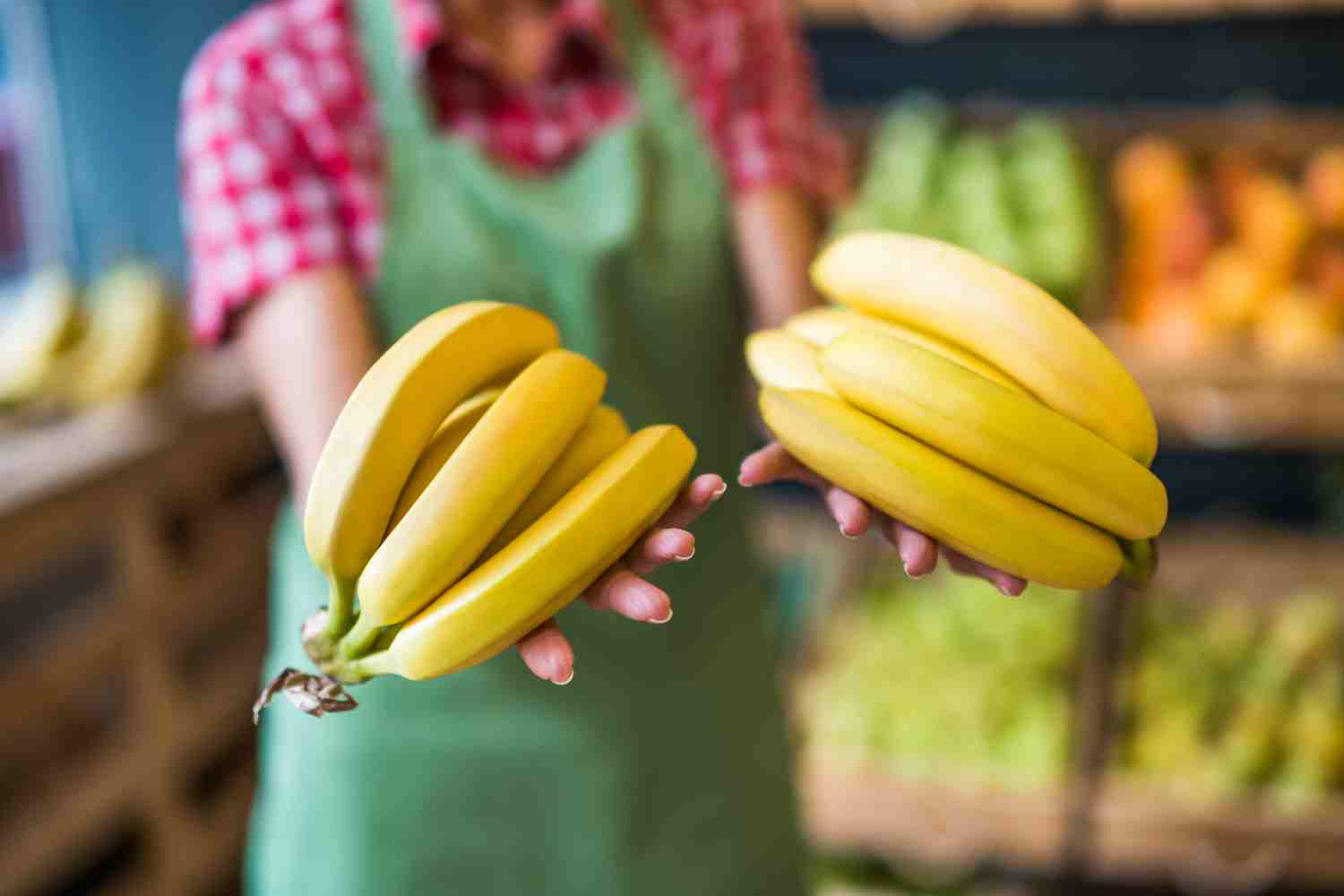
In addition to noting the suitable fruits for weight loss, individuals must watch out for the fruits that can reverse their progress.
Illustrated below are some of these -
A fruit diet that considers portion control, variety, added proteins, and healthy fats can lead to beneficial results. Low-calorie, high-fibre fruits should be consumed, while high-sugar options should be avoided. Moreover, their natural antioxidants and anti-inflammatory properties support overall metabolic health, making them an indispensable component of a balanced, weight-loss-friendly diet.
That marks the end of this article on fruits for weight loss. So, go ahead and enjoy your fruits, alongside losing weight.














